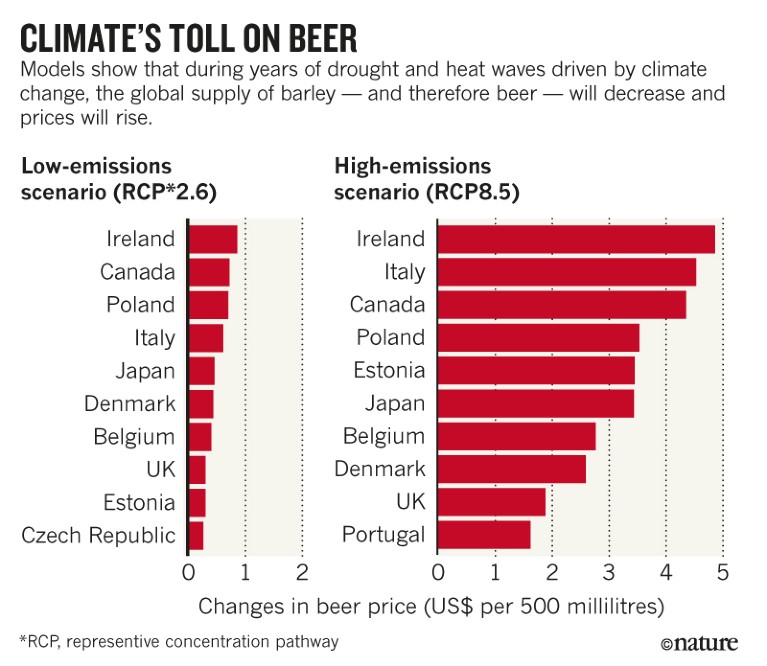The quantity and quality of hops – a key ingredient for beer – is being affected by global heating. According to a new study, manufactures will likely have to adapt their brewing methods as they become more expensive to grow.
For many, climate change remains a distant threat.
Though the crisis dominates our news feeds, a concerning number of people continue to turn a blind eye to the havoc it’s wreaking on our planet. A recent revelation that global heating will make beer cost more and taste worse may wake up this cohort to the severity of the situation, however.
According to a new study published in Nature, rising temperatures are affecting the quantity and quality of hops – a key ingredient in the world’s most beloved alcoholic beverage – and, as a result, beer could become more expensive and manufactures will have to adapt their brewing methods.
As it states, European regions that produce the third most widely consumed drink (after water and tea) on Earth are projected to experience a fall of between 4 and 18% in their yield of traditional aroma hops by 2050 and up to a 31% reduction in hop acids that are crucial for bitter flavouring.
The research ‘demonstrates a climate-induced decline in the quality and quantity of traditional aroma hops across Europe and calls for urgent adaptation measures to stabilise international market chains.’

It adds that ‘since agricultural droughts are projected to increase with high confidence in southern Europe and medium confidence in central Europe, it will be necessary to expand the area of aroma hops by 20% compared to the current production area to compensate for a future decline.’
Conducted by Cambridge University and the Czech Academy of Sciences (CAS), the analysis found that from 1995 to 2018 there was a drop of nearly 20% in the growth of hops, compared to the previous 23 years.





















